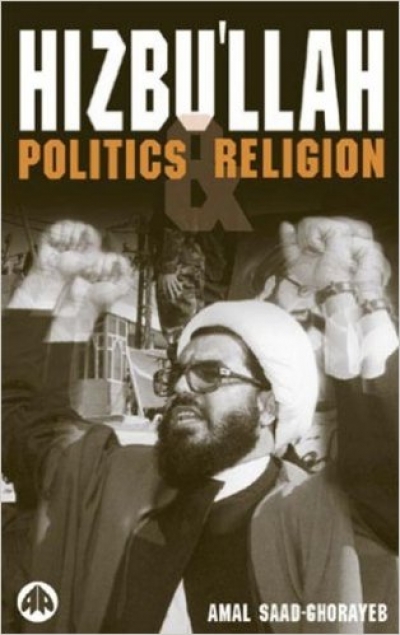



Donald Trump is not only a narcissist he is also a complete moron. In simple terms, he is thick and stupid. How can he say he recognizes Israel’s sovereignty over the Golan Heights?
In case of government debt, politics usually plays an important role in the decision to open and close the debt tap and in Lebanon everything is political. It seems that debt lenders—international financial institutions—have a vested interest in keeping the debt cycle going.
Occupation of other people’s land is illegal under every law and convention. This rule, however, does not seem to apply to the Zionists and imperialists as witnessed in the recent UN resolution about the illegality of Zionist occupation of the Syrian Golan Heights.
In the confessional ridden political set-up in Lebanon, the Hizbullah-led alliance still emerged on top despite US, Zionist and Saudi manipulation and disruption.
The people of Lebanon voted for stability and security in the parliamentary elections giving the Hizbullah-led alliance a comfortable majority with 67 out of 128 seats.
The Saudi-engineered Sa‘ad Hariri resignation has important implications for leaders of the Islamic movement worldwide. Are they prepared to learn the proper lessons or continue the chase the money trail with disastrous consequences?
The success of the Islamic revolution in Iran exposed the secular nationalists both in Iran and the rest of the Muslim world.
Lebanon finally has a president in 29 months. Saad Hariri, a former prime minister, had to submit to ground realities by accepting the choice of Hizbullah, his political rivals, for president.
Ten years after Zionist Israel’s war of aggression on Hizbullah in Lebanon, we examine the political, military and strategic dimensions of the Zionists’ crime and blunder. Will the Zionists dare carry out a frontal assault against Hizbullah again?
As museums go, Mleeta, the museum of resistance, is unique. It depicts with stunning clarity the humiliating defeat the Zionist aggressors suffered with their tanks, artillery and other war materiel embedded in concrete to reflect their impotence.
Who is behind the crisis in Lebanon? A genuine concern of the people--piles of garbage in Beirut--has been turned into a political crisis with demands for the government's resignation. How would that solve the garbage crisis or indeed the lack of electricity and water in the country has not been explained. There is mounting evidence that Western, Zionist and Saudi agents are involved in instigating trouble. Their ultimate target is Hizbullah.
Hizbullah: Politics and Religion by Amal Saad-Ghorayeb. Pub: Pluto Books, London, UK, 2002. Pp: 254. Pbk: £14.99.
Sectarianism was never a major factor in the Syrians’ identity. It is being thrust upon it with the rise of Daesh and other terrorist outfits, instigated by the Najdi Bedouins and their tribal allies.
While Syrians outside the country in overwhelming numbers cast ballot in the advance poll on May 28, in Egypt by contrast the turnout was very low. Western governments reflecting cynicism and duplicity, rejected the Syrian poll while hailing those in Egypt and Ukraine. People around the world have begun to understand western hypocrisy better.
There are only two things the Saudis know: spreading sectarianism and using the oil wealth to buy loyalty of people, especially politicians in different Muslim countries. Emile Lahoud, the former Lebanese President made a candid revelation in an interview with Iran's Press TV on May 3 saying that he was offered a suitcase full of dollars when he became the commander in chief of Lebanese armed forces.
Lebanon and Hizbullah’s accommodation of Syrian refugees wins praise from reader Seyyed Murtaza.
After enduring three months of captivity following their kidnapping by Western-Arab-backed terrorists in Syria, 13 nuns and three of their helpers were finally released today. In return, the Syrian government agreed to release 153 women prisoners. The swap was facilitated by Lebanese and Qatari intelligence agencies. The nuns arrived, exhausted in Syria earlier this evening.
Local ceasefires agreed between the Syrian army and rebels in several Damascus suburbs has given rise to hopes that similar deals could be struck elsewhere in the country. The ceasefires have brought relief to the besieged people. The government has agreed to an amnesty for Syrian rebels but they must give up their heavy weapons. This amnesty does not extend to foreign mercenaries backed by Saudi Arabia, Qatar, the US and Israel.
The Lebanese intelligence has made steady progress against Saudi-backed and financed terrorists in Lebanon. Another leader of al-Qaeda terrorist group was captured in Beirut, according to an army communique today. This followed the arrest of the Saudi-financed terrorist Sheikh Omar Ibrahim al-Atrash (seen in photo) who revealed under interrogation his links with terrorist outfits in Syria and his role in car bombings in Lebanon.

